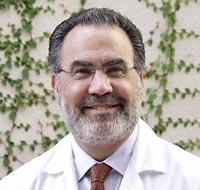Selling Drug Secrets
Investors quiz researcher in recorded conference call
In a July 18 conference call, a leading cancer-research doctor at UCLA discussed drug development with at least 10 elite investors, including hedge-fund managers. Dr. Robert Figlin was quizzed about two potential new drugs for kidney cancer: Sutent, a Pfizer drug for which he was a principal researcher, and Sorafenib, which he monitored for safety for Onyx Pharmaceuticals.
Brokerage firm Friedman Billings Ramsey hosted the 47-minute call and recorded it. The Seattle Times obtained a copy of the recording.
Jim Reddoch, a biotech analyst for Friedman Billings Ramsey, moderated the call. After Figlin's introductory remarks, Reddoch invited questions. He also announced that Figlin was speaking for a fee.
FIGLIN: Totally inadequate, I must say.
REDDOCH: If you do well enough, though, we can ramp it up next time, right?
FIGLIN: I would hope so.
This call was timely because drug giant Pfizer was in a race with tiny Onyx Pharmaceuticals, partnered with Bayer, to get FDA approval for competing kidney-cancer drugs. Being first in the market gives a new drug a tremendous sales advantage.
In the weeks leading up to the July 18 call, Wall Street analysts' reports show they had been trying to figure out whether Onyx or Pfizer would file for approval first.
|
Robert Figlin |
Onyx announced July 11 it had filed with the FDA. Analysts thought Pfizer had also filed, but the company was being tight-lipped.
But immediately, Figlin, a consultant to Pfizer, gave the listeners detailed timetables of the company's drug-application plans. Pfizer's first application for FDA approval of Sutent "will be filed by the end of the summer," he said.
The value of Figlin's information became obvious two days later, when Pfizer let slip that it had not yet filed with the FDA. Analysts who had not been on the call with Figlin put out research reports speculating that Pfizer was losing its cancer-drug race with Onyx. That day Onyx shares rose $2.94 — or 12 percent — on heavy volume.
The next day, July 21, Pfizer responded, saying it would file for FDA approval of Sutent in August — close to the timetable Figlin had provided.
Onyx shares fell 10 percent on the news, nearly wiping out the previous day's gain.
Hedge-fund handicapping
During the July 18 conference call, Figlin also was asked to "handicap" the results of one of the drug trials. In particular, one hedge-fund manager asked whether Onyx would be able to show that its kidney-cancer drug, Sorafenib, had a "survival benefit" — that patients taking Sorafenib were living longer. A survival benefit is the gold standard for a cancer drug's success.
QUESTION: And your bet is ...
that there will be a survival benefit?
FIGLIN: That's a good question.
My bet — am I betting with your money or mine?
— my bet is that there will be a survival benefit.
Figlin told listeners he based his bet on information from the leading doctor on the Sorafenib research in Europe, Bernard Escudier. Figlin had learned that 75 percent of the patients on the study were from outside the United States, which would overcome a problem that had arisen in analyzing data from U.S. patients. That meant the ongoing study had a much better chance of showing a survival benefit.
Doctor denies doing anything wrong
In an interview with The Times after the call, Figlin said he talked to Wall Street firms a couple of times a month through matchmaker firms such as Gerson Lehrman Group for $300 an hour. He said he sees nothing wrong with talking to Wall Street investors as long as doctors discuss only publicly available information.
"I don't think it's appropriate for the physician to ever discuss things that are unpublished, or anecdotal," including any prediction of a drug's survival benefit, he said.
When asked about his prediction of a survival benefit during the July 18 call, Figlin said he was just expressing his hope for its success.
"I take care of hundreds of kidney-cancer patients, and I'd like to finally have an agent that demonstrates a survival advantage. If they then take that information and decide, 'Oh, Figlin thinks the trial is positive,' then they are extracting information and making conclusions on their own dime."
He said he had talked about "generally available" information but acknowledged he may have discussed information he heard from other doctors on the studies.
— David Heath and Luke Timmerman

